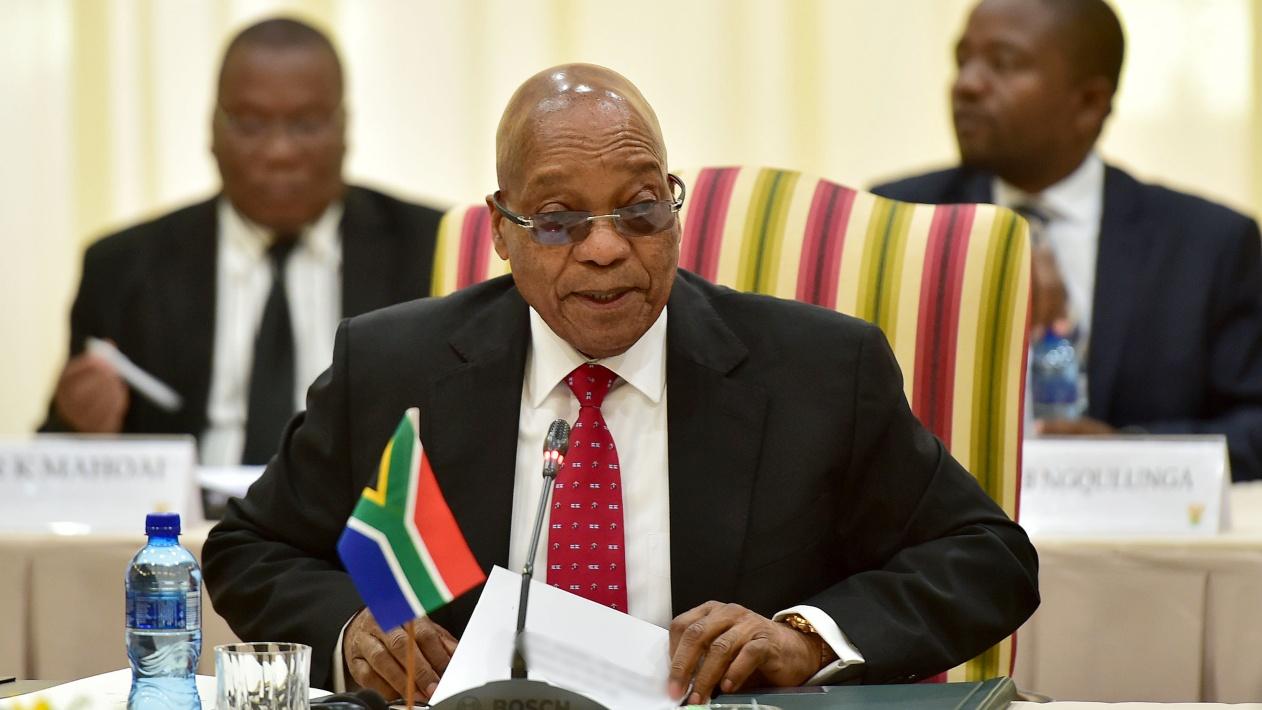By combining religious rhetoric and secular policies, South Africa’s ruling African National Congress created an inclusive anti-apartheid movement and national identity. Their approach continues to appeal to voters today, writes David Jeffery-Schwikkard.
“When you vote for the ANC, you are also choosing to go to heaven. […] When you get to heaven, the angels will be dressed in green, black, and gold [the colours of the ANC]. The holy ones belong to the ANC.” Jacob Zuma, 2011.
Few other presidents have attracted as much religious controversy in South Africa as the African National Congress’s (ANC) Jacob Zuma. While the above quote is among his most colourful, Zuma regularly offered soundbites that combined politics and religion.
“I believe no one can argue South Africa is not based on the principles of God” Zuma, 2008.
“We believers know that Jesus will come back; we say the ANC will rule until he comes back” Zuma, 2009.
“Believe in two things: God and the ANC.” Zuma, 2011.
Zuma’s comments provoked moral panic among politicians and media commentators: was this the beginning of a “creeping Christian conservatism” within the ANC that would threaten the secular constitution?
While Zuma’s comments may have been the most provocative, he is not alone among leaders of the ANC in evoking religion in his rhetoric. In his 2006 State of the Nation address, Thabo Mbeki quoted extensively from the Bible in parliament. Nelson Mandela claimed in 1999 that “religion was one of the most motivating factors in everything we did.” During the Constitutional Assembly in 1995, Cyril Ramaphosa clutched a Bible as he received a petition outside parliament.
This history surprises many commentators, who more closely associate the ANC as a communist and revolutionary movement. And it is surprising, especially as the ANC has been committed to a secular state and has pursued many policies that are typically seen as being at odds with traditional religious values, such as recognising same-sex marriage and liberalising access to abortion.
Over the last century, there has been a consistent pattern in the ANC: the combination of sometimes religious (but almost always inclusive) rhetoric with a secular policy agenda and organisational structure. While the ANC may have been founded by religious leaders, it welcomed a membership with diverse ideologies – including Marxists and Garveyites. The ANC may not have been a formal religious organisation, but it did have a party chaplain, worked closely with religious leaders, and often made explicitly religious appeals – such as a call for a “day of prayer” in 1949 to “remember Christ who is our champion of freedom.” Even while it deepened its partnership with the South African Communist Party (SACP) and the Union of Socialist Soviet Republics (USSR), the ANC established a supportive department of religious affairs, issued joint communiques with churches publicly affirmed liberation theology, which regards unequal socioeconomic structures as sinful. The ANC advocated a secular state in the constitutional negotiations, and, even under Zuma, this commitment to secular laws and party policies remained unchanged.
Religion and nationalism
Far from being simply either a communist vanguard or populist Christian movement, the ANC pursued a quintessentially nationalist project of unity in South Africa. Against the apartheid regime’s efforts to divide the country into multiple ethnic nations, the ANC advocated a single and inclusive national identity. Given the religious and ideological diversity within the anti-apartheid struggle, this ideal identity was necessarily secular. Given the prevalence of Christianity throughout the country, even a secular identity needed to welcome religion. The ANC’s innovation has been to combine a secular policy agenda with religious language and practices.
While this strategy might explain how the ANC can retain a broad membership base, it is nonetheless surprising that secular policies resonate with the electorate. After all, in a country as apparently socially conservative and religious as South Africa, one would expect parties advocating for religious policies to be more popular. Nearly 80 per cent of South Africans are Christian. More than half of South Africans believe abortion is “always wrong“ even in cases of foetal abnormality. In 2004, 64 per cent believed that the Bible should be “taken literally, word for word.“ Yet parties proposing religious policies, such as the African Christian Democratic Party (ACDP), never receive more than a tiny fraction of votes.
The answer may lie in a national survey conducted in 2015. While 72 per cent of South Africans thought that same-sex sexual activity was morally wrong, only 21 per cent thought that the constitutional provisions protecting sexual orientation should be removed. While 21 per cent may still be alarmingly high, the 51-percentage point gap between these two figures suggests a profoundly secular approach: although people may have their own strong views about religion and morality, they do not think these should necessarily be reflected in the law. In the words of a report on the survey, South Africa is a country of “progressive prudes.”
These nuances caution against moral panic. Critics of Zuma’s comments may have been naïve in assuming that either Zuma or his audience would really believe that angels wore ANC’s regalia. Rather, secular politics in a religious country may require a delicate – and at times ambiguous – approach. Voters may wish for two things: leaders who share their beliefs and the reassurance that no one’s beliefs will be foisted on anyone else.
Photo credit: GovernmentZA used with permission CC BY-ND 2.0






Thanks for the shared work, was interested on religious rhetoric and found out some important notes. Would be happy to have further discussion as am working on my phd on religious rhetoric in presidential elections in Tanzania. found through